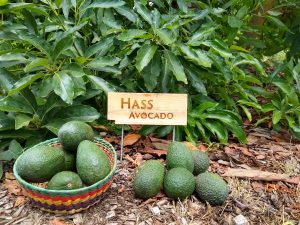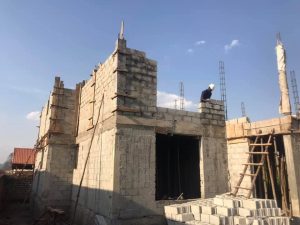
#OutToLunch Any lessons from pine, vanilla and ginger growers for Hass Avocado farmers?
By Denis Jjuuko In the 1990s, there was a craze that took the country by storm. Everyone was going to become rich, extremely rich. All that one needed to do was to plant vanilla. People who longed to become billionaires cut down coffee trees, banana plantations, and put every effort in growing vanilla. The price was so high that vanilla crops are said to have been guarded by people with guns day and night. There were no taking chances. Of course, a few people became wealthy from vanilla before the price stabilized. The main reason for the price increment of vanilla was a result of a harsh weather event in Madagascar, the world’s leading exporter. When Madagascar was able to produce again in the numbers they do, the price stabilized. Even though vanilla’s price is still high compared to many other crops in Uganda, it also needs a lot of care that the get-rich-quick farmers are not ready to do. Frustrated and looking for the next big thing, something else would soon catch their attention. This time it was moringa, a tree said to have hundreds of health benefits. If you planted a few moringa trees, you would kiss poverty goodbye for life. Your grandchildren’s future would be secured, for real. Those who planted the tree were soon looking for buyers and they were not coming in the numbers expected. Some cut down the trees for firewood, thereby turning their dreams into ash. Another tree was to be introduced soon. One acre of pine trees would make one a billionaire. It is the world’s most wanted tree needed to make wood and its byproducts, we were told. Forestry authorities dished out land to those who didn’t even want. You earned everyone’s ear if you mentioned that you owned a few acres of pine trees. Lifetime savings and benefits for retirement were withdrawn and all invested in pine trees in preparation for living the life of billionaires. Others tendered in their papers for early retirement. Why suffer so much when you can plant a few trees and die rich? Soon the price of pine dropped. Supply exceeded demand. Like vanilla, pine is tedious to grow. It also takes a lot of time maturing at around 15 years (depending on species). Many of the retirees died before they became rich. Today, there aren’t many people talking about pine anymore. Owning them doesn’t raise eyebrows to most people. Less than five years ago, we were told that you would make unbelievable money if you grow just one acre of ginger. Last week, ginger farmers in Gomba, the media reported, told one of the presidential candidates that they will only vote in a candidate who promises better prices. A bag (100kg) of ginger fell from Shs800,000 to around Shs150,000. Although ginger intake has increased during this COVID-19 period, the prices have not gone up for the farmers. Today, you have probably received an email about Hass Avocado. “Hass Avocados mature after two years and a single tree can produce 3,000 fruits (500kgs). An acre requires 166 trees, which comes to 450,000 fruits. A fruit is sold at Shs550 which means that you will make Shs1,650,000 per a year per a tree. With just an acre, you will make Shs273.9m a year,” the emails and flyers read. The cost of planting an acre to earn all this money is very minimal, they tell us. Now, many people are growing Hass Avocado in preparation of making Shs273.9m a year per acre or even double if you do the export yourself according to the promoters who are mainly seedling sellers. If you want to be respected among your peers, mention the number of Hass Avocado you own and roll out the above figures. But have we as a country learnt anything from vanilla, moringa, ginger, and pine? Have we created a value chain for Hass Avocado? What will happen when the fruits mature and a lockdown happens and nobody can export? How do we minimize post-harvest losses which are one of the challenges we face in agriculture in Africa? There is a need to invest in value addition for Hass Avocado and its value chain so that people don’t make losses when five years from today, there will be more fruits on the market than people who need them. We can make healthier edible oil from it, juice, and even snacks, among others. The writer is a communication and visibility consultant. djjuuko@gmail.com

